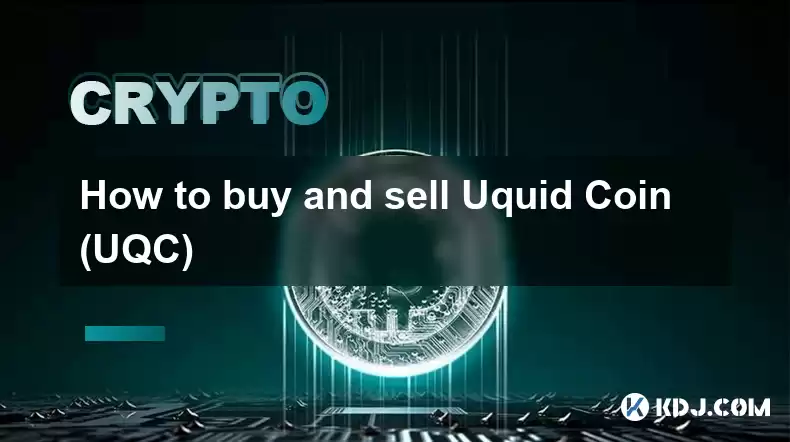-
 Bitcoin
Bitcoin $112400
-1.07% -
 Ethereum
Ethereum $3409
-3.27% -
 XRP
XRP $2.784
-6.60% -
 Tether USDt
Tether USDt $0.9997
-0.03% -
 BNB
BNB $739.3
-2.09% -
 Solana
Solana $158.0
-2.90% -
 USDC
USDC $0.9998
-0.02% -
 TRON
TRON $0.3213
-0.94% -
 Dogecoin
Dogecoin $0.1929
-5.01% -
 Cardano
Cardano $0.6974
-2.82% -
 Hyperliquid
Hyperliquid $36.69
-2.31% -
 Sui
Sui $3.327
-4.80% -
 Stellar
Stellar $0.3672
-5.18% -
 Chainlink
Chainlink $15.65
-3.07% -
 Bitcoin Cash
Bitcoin Cash $525.0
-1.68% -
 Hedera
Hedera $0.2291
-6.00% -
 Avalanche
Avalanche $20.91
-2.96% -
 Ethena USDe
Ethena USDe $1.000
0.00% -
 Toncoin
Toncoin $3.520
-1.12% -
 UNUS SED LEO
UNUS SED LEO $8.968
0.14% -
 Litecoin
Litecoin $105.7
0.26% -
 Shiba Inu
Shiba Inu $0.00001181
-1.79% -
 Polkadot
Polkadot $3.492
-2.08% -
 Uniswap
Uniswap $8.800
-3.10% -
 Dai
Dai $0.9999
-0.01% -
 Monero
Monero $289.9
-3.17% -
 Bitget Token
Bitget Token $4.243
-1.27% -
 Pepe
Pepe $0.00001006
-3.67% -
 Cronos
Cronos $0.1248
-5.68% -
 Aave
Aave $249.7
-2.50%
How to buy and sell Uquid Coin (UQC)
To buy Uquid Coin (UQC), choose a reputable cryptocurrency exchange like KuCoin, set up an account, deposit funds, and place a buy order at the desired price.
Dec 29, 2024 at 11:24 am

How to Buy and Sell Uquid Coin (UQC)
Key Points:
- Understand the basics of Uquid Coin and its use cases.
- Choose a reputable cryptocurrency exchange that supports UQC trading.
- Set up an account with the exchange and complete the verification process.
- Deposit funds into your exchange account to purchase UQC.
- Place a buy order for UQC at the desired price and quantity.
- Monitor your order and adjust as needed until it is filled.
- Withdraw your purchased UQC to a secure cryptocurrency wallet.
- Sell UQC by placing a sell order on the exchange and withdrawing the proceeds.
Step 1: Understand Uquid Coin (UQC)
Uquid Coin (UQC) is a cryptocurrency that is the native token of the Uquid platform, a blockchain-based payment system that aims to provide fast, secure, and cost-effective transactions.
UQC is used to facilitate payments and remittance services on the Uquid platform. It can be employed for peer-to-peer transfers, business payments, and the purchase of goods and services.
Step 2: Choose a Cryptocurrency Exchange
To purchase or sell UQC, you will need to use a cryptocurrency exchange that supports UQC trading. Some reputable exchanges that offer UQC trading include:
- KuCoin
- HitBTC
- Bittrex
Step 3: Set Up an Exchange Account
Once you have selected an exchange, you will need to create an account and complete the verification process. This typically involves providing your personal information, contact details, and identity verification documents.
Step 4: Deposit Funds
To purchase UQC, you will need to deposit funds into your exchange account. You can do this via bank transfer, credit card, or other supported payment methods.
Step 5: Place a Buy Order
With funds in your account, you can now place a buy order for UQC. Choose the type of order you want to place (e.g., market order, limit order) and enter the desired price and quantity.
Step 6: Monitor and Adjust Order
Your buy order will be placed in the exchange's order book. Monitor your order to ensure it gets filled at the desired price. If necessary, you can adjust the order parameters until it is executed.
Step 7: Withdraw UQC
Once your buy order has been filled, you can withdraw your purchased UQC to a secure cryptocurrency wallet for safekeeping and management of your digital assets.
Step 8: Sell UQC
To sell UQC, place a sell order on the exchange at the desired price and quantity. Once your sell order is matched with a buyer, the UQC will be sold, and the proceeds will be credited to your exchange account. You can then withdraw the proceeds to a bank account or other supported payment method.
Frequently Asked Questions
What is the use case of UQC?
UQC is the native token of the Uquid platform and is used to facilitate payments and remittance services on the platform.
Which exchanges offer UQC trading?
Listed in this article are the reputable exchanges that offer UQC trading, including KuCoin, HitBTC, Bittrex.
How do I store UQC?
UQC can be stored in a secure cryptocurrency wallet. Several hardware and software wallets support UQC storage.
Disclaimer:info@kdj.com
The information provided is not trading advice. kdj.com does not assume any responsibility for any investments made based on the information provided in this article. Cryptocurrencies are highly volatile and it is highly recommended that you invest with caution after thorough research!
If you believe that the content used on this website infringes your copyright, please contact us immediately (info@kdj.com) and we will delete it promptly.
- Grayscale, Altcoin Trust, and Mid-Cap Mania: What's the Deal?
- 2025-08-03 08:50:16
- XRP, ADA, and the Altcoin Evolution: What's Hot and What's Next
- 2025-08-03 08:30:16
- HBAR Price Check: Will Monthly Gains Hold at This Resistance Level?
- 2025-08-03 08:30:16
- Bitcoin, Cryptos, and Retirees: A New Era of Investment?
- 2025-08-03 08:50:16
- BlockDAG's Presale Power & Active Miners: A New York Minute on Crypto's Hottest Trend
- 2025-08-03 08:55:25
- BlockDAG Presale Heats Up: SUBBD Trails as Innovation Meets Execution
- 2025-08-03 09:00:16
Related knowledge

What is Chainlink (LINK)?
Jul 22,2025 at 02:14am
Understanding Chainlink (LINK): The Decentralized Oracle NetworkChainlink is a decentralized oracle network designed to bridge the gap between blockch...

What is Avalanche (AVAX)?
Jul 22,2025 at 08:35am
What is Avalanche (AVAX)?Avalanche (AVAX) is a decentralized, open-source blockchain platform designed to support high-performance decentralized appli...

What is Polkadot (DOT)?
Jul 19,2025 at 06:35pm
Understanding the Basics of Polkadot (DOT)Polkadot (DOT) is a multi-chain network protocol designed to enable different blockchains to transfer messag...

What is Litecoin (LTC)?
Jul 23,2025 at 11:35am
Overview of Litecoin (LTC)Litecoin (LTC) is a peer-to-peer cryptocurrency that was created in 2011 by Charlie Lee, a former Google engineer. It is oft...

What is Monero (XMR)?
Jul 21,2025 at 10:07am
What is Monero (XMR)?Monero (XMR) is a decentralized cryptocurrency designed to provide enhanced privacy and anonymity for its users. Unlike Bitcoin a...

How to add indicators to Ethereum chart on TradingView?
Jul 19,2025 at 07:15am
What Is an Ethereum Chart on TradingView?The Ethereum chart on TradingView is a visual representation of the price movement of Ethereum (ETH) over a s...

What is Chainlink (LINK)?
Jul 22,2025 at 02:14am
Understanding Chainlink (LINK): The Decentralized Oracle NetworkChainlink is a decentralized oracle network designed to bridge the gap between blockch...

What is Avalanche (AVAX)?
Jul 22,2025 at 08:35am
What is Avalanche (AVAX)?Avalanche (AVAX) is a decentralized, open-source blockchain platform designed to support high-performance decentralized appli...

What is Polkadot (DOT)?
Jul 19,2025 at 06:35pm
Understanding the Basics of Polkadot (DOT)Polkadot (DOT) is a multi-chain network protocol designed to enable different blockchains to transfer messag...

What is Litecoin (LTC)?
Jul 23,2025 at 11:35am
Overview of Litecoin (LTC)Litecoin (LTC) is a peer-to-peer cryptocurrency that was created in 2011 by Charlie Lee, a former Google engineer. It is oft...

What is Monero (XMR)?
Jul 21,2025 at 10:07am
What is Monero (XMR)?Monero (XMR) is a decentralized cryptocurrency designed to provide enhanced privacy and anonymity for its users. Unlike Bitcoin a...

How to add indicators to Ethereum chart on TradingView?
Jul 19,2025 at 07:15am
What Is an Ethereum Chart on TradingView?The Ethereum chart on TradingView is a visual representation of the price movement of Ethereum (ETH) over a s...
See all articles

























































































